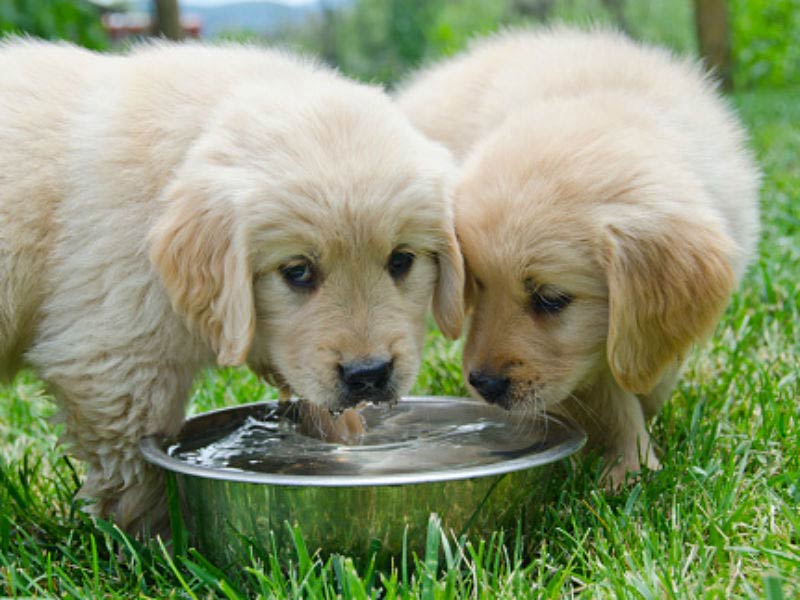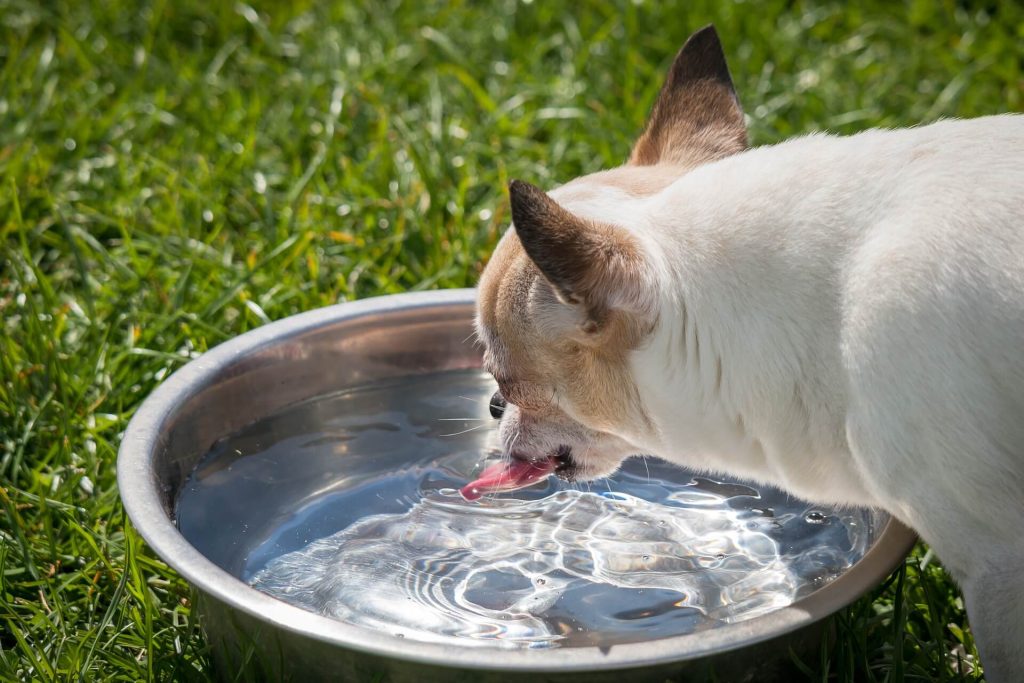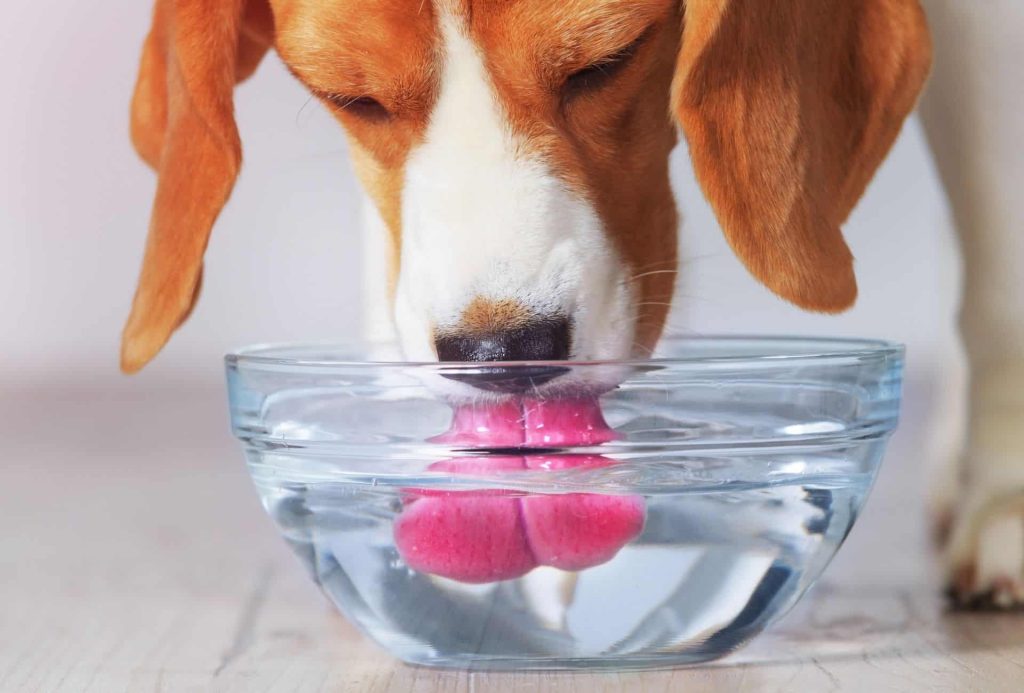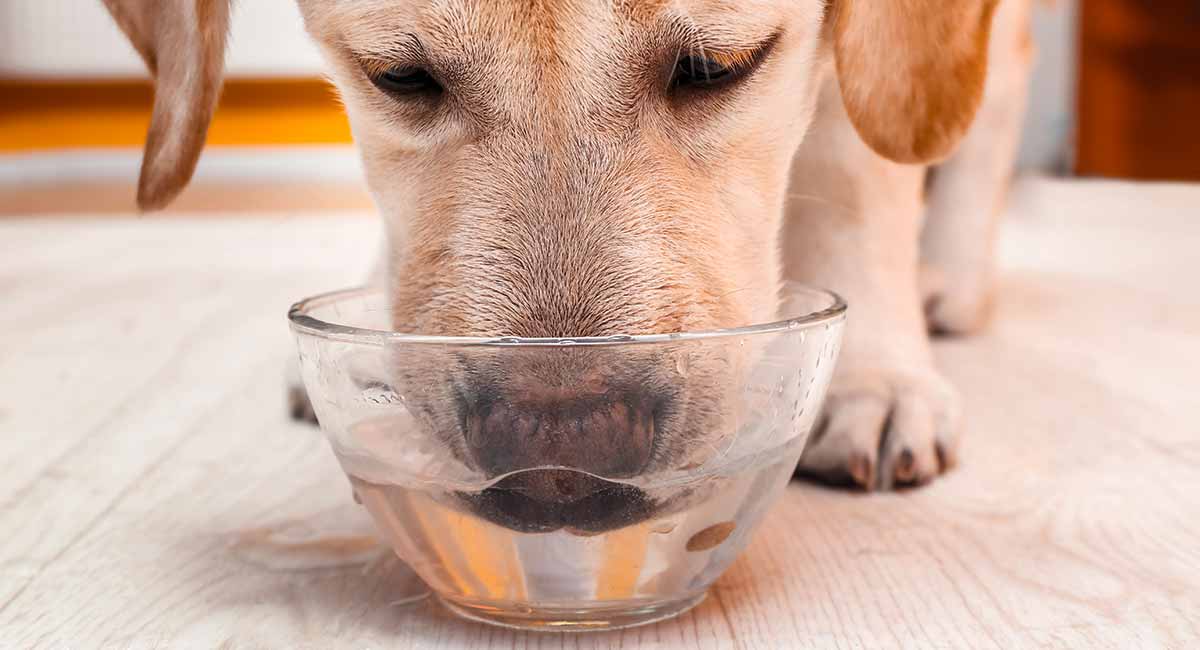Water is one of the most essential nutrients for dogs. But how much water should a dog drink per day? The right amount varies based on factors like size, activity level, and health.
Understanding your dog’s ideal daily water intake will help ensure they stay properly hydrated. Dehydration is dangerous, while excessive water intake can also signal issues.
In this article, we’ll cover average water needs based on dog size along with the signs of dehydration and overhydration to watch for. We’ll also look at how to encourage proper water consumption if your dog isn’t drinking enough.

Average Daily Water Requirements for Dogs
On average, most healthy dogs need the following daily water intakes:
Small dogs (under 20 lbs)
- 1 to 2 cups per day
Medium dogs (20 – 50 lbs)
- 2 to 3 cups per day
Large dogs (50 – 90 lbs)
- 3 to 5 cups per day
Giant breeds (over 90 lbs)
- 5 or more cups per day
Of course, these are just general guidelines. Fluid needs can vary based on activity level, health conditions, diet, age, and weather among other factors.
Very active dogs may require double the typical amount on big exercise days. Hot weather drives the need for more water as well.
Senior dogs tend to drink less, while nursing mothers need more fluid intake. Get to know your individual dog’s needs.

Signs Your Dog Isn’t Drinking Enough Water
Dehydration is dangerous for dogs. Be alert for these signs that your dog may need more water:
- Dry or sticky gums and mouth
- Loss of skin elasticity – when skin is pulled up, it slowly retracts
- Sunken eyes or appearing dazed
- Lethargy, weakness or unsteadiness
- Dark yellow or brown urine
- No urination for over 8-12 hours
- Thick saliva or dry nose and eyes
- Panting without recent exercise
If you notice these dehydration red flags, offer your dog water and contact the vet if symptoms persist. Left untreated, dehydration can be life-threatening.
Signs Your Dog is Drinking Too Much Water
On the other end of the spectrum, excessive water consumption could point to an underlying medical issue. Contact your vet if your dog shows these signs:
- Urinating much more frequently
- Large volumes of clear urine
- Accidents in the house
- Constant thirst – attempts to drink water whenever near the bowl
- Diluted urine – very pale yellow or clear
- Drinks water obsessively – entire bowl in minutes
Excessive thirst and urination may indicate diabetes, kidney disease, Cushing’s disease or other conditions requiring treatment. Veterinary tests can check for the cause.

Tips to Get Your Dog to Drink More Water
If your dog isn’t drinking enough, try these tips to encourage proper hydration:
- Try different bowls – elevated bowls, larger bowls or heated water dispensers may entice them
- Add water to their food – mix in some warm water to create a gravy
- Offer ice cubes to chew
- Use water fountains – circulating water encourages drinking
- Try flavored waters – low sodium chicken or vegetable broth for added taste
- Exercise before water – dogs tend to drink after activity and panting
- Provide fresh water daily – wash bowls and replenish frequently
Monitor their water intake carefully. Call the vet promptly if dehydration signs arise. Keeping your dog well-hydrated is fundamental to their health.
How Much Water Do Puppies Need?
Puppies generally need more water per pound of body weight than adult dogs. To stay hydrated:
- Provide fresh water continuously in a stable, non-tip bowl
- Change water frequently – at least 2-3 times per day
- Feed wet food to add moisture to their diet
- Bring water on walks for frequent sips
- Check for signs of dehydration which can develop fast in puppies
Monitor water intake and consult your vet with any concerns. Proper hydration supports healthy growth and development.
Getting to know your dog’s normal water drinking habits makes it easier to spot potential issues. While amounts vary, aiming to meet general daily guidelines provides a starting point. Work with your vet to ensure your dog stays well-hydrated.


